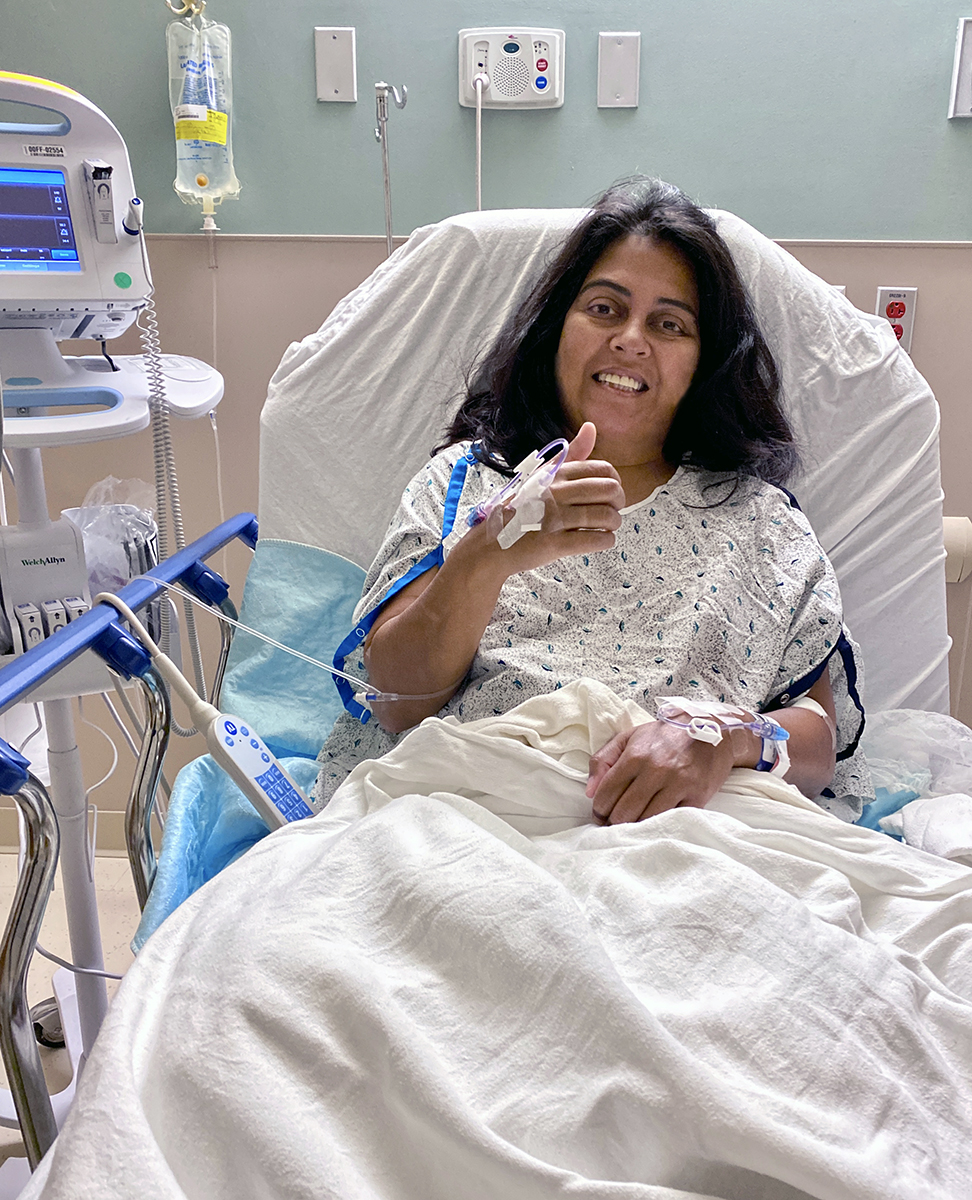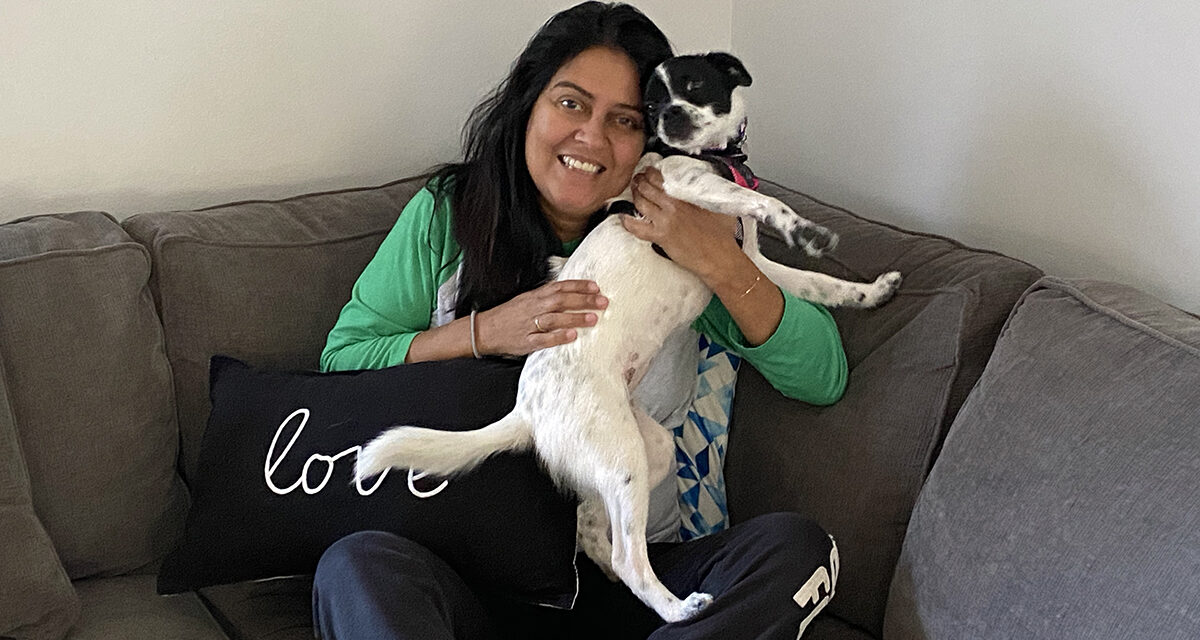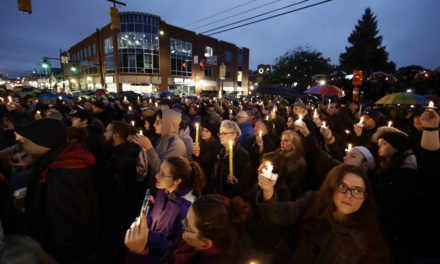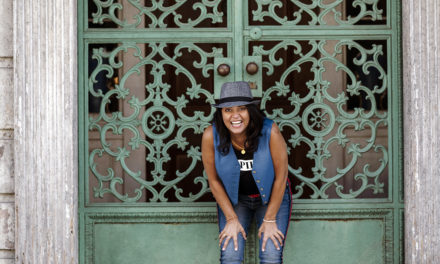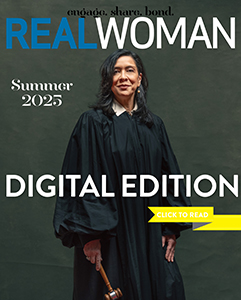Doctors at Capital Health—and my own instincts—led to a hysterectomy that may have spared me from cancer.
At 7:30 in the morning on October 28, I was laying on a gurney in the operating room at Capital Health, trying to breathe through my anxiety. As I joked with Harry, an operating room nurse, about what a mess he made of my hair in the hospital-issued hair net, I couldn’t help but think how far I was from where I thought I’d be at that moment.
I couldn’t have predicted a pandemic, to be sure, but having a hysterectomy at just 48 years old wasn’t exactly in the life plan either. But the best-laid plans sometimes give way to life-saving decisions, and that’s where I found myself on that fall morning.
Like so many women, I’m not the best at remembering to care for myself. My own needs (and remembering to eat my veggies) often take a back seat to work, caring for my elderly parents, and spending time with my partner and two kiddos.
This year, however, my health needs refused to take a back seat, no matter how much I tried to ignore them or procrastinate. As 2020 unfolded, I just wasn’t feeling like myself. I felt low-energy—even lethargic—and I endured stretches of severe back and abdominal pain every few weeks. But, like we often do, I pressed on. I made excuses and chalked it up to the toll the pandemic was taking on so many of us.
Despite my symptoms, I also pushed off my annual exam from spring to fall because I just wasn’t comfortable with being in a doctor’s office during COVID. Deep down though, I knew it was time for a checkup. So, when the appointment popped up on my calendar early last fall, despite being consumed with other priorities, I kept the appointment. I knew it was time to practice what I’d been preaching to my parents about listening to their bodies and speaking up when there’s a problem.
When I think about it, I’ve spent decades advocating for my elderly parents around their health. But this time, I was the patient, and I had to advocate for myself.
At the appointment, I was forthcoming (if a little casual) about inconsistent periods and periodic back pain. That information, coupled with the irregular pap smear that turned up days later, led my doctor to get more tests. Those tests resulted in concerns about abnormal cells in my uterus. That’s when I found Dr. Joyce Varughese, a Capital Health gynecologic oncology surgeon who specializes in minimally invasive procedures. While my mind was still stuttering over even considering the word cancer, Dr. Varughese and her team were incredibly responsive, thorough, and quickly paved a clear and intentional path for my care. They anchored me with the confidence that a hysterectomy was the best decision for my long-term health. What I thought would be a long, drawn-out process proved to be a matter of weeks before I found myself in the operating room. Since the doctor was able to surgically remove my uterus and fallopian tubes laparoscopically, I was home in my bed (albeit in a great deal of pain) later that night.
Don’t get me wrong—a hysterectomy is no picnic. It’s taken me every bit of the last 7 weeks to feel like I can sneeze without my insides falling out, although I am feeling better and stronger.
But the most significant impact of the surgery is what didn’t happen. A week after my surgery, I returned to Dr. Varughese’s office for my surgical follow-up. She told me everything went well and that I was healing just fine. She also told me that she removed polyps and pre-cancerous cells when she took out my uterus and fallopian tubes. Although she didn’t expressly say it, I understood that without this surgery, I could have been facing cancer in the not-too-distant future.
When I got in the car to go home, I cried, letting the gratitude and relief wash over me. I am so thankful for the team of doctors at Capital Health who managed my care. But more than that, I am so grateful I listened to my body and stopped making excuses, even during the pandemic.
I encourage you to do the same. It could save your life.
When I think about it, I’ve spent decades advocating for my elderly parents around their health. This time, I was the patient, and I had to advocate for myself.

